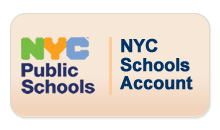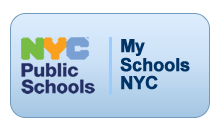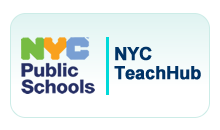I.E.P. Services
Guideline for Parents (who are concerned about their child’s academic or behavioral performance)
- Make an appointment with your child’s teacher to determine whether your concerns are valid.
- Try strategies with assistance of classroom teacher.
- If after the implementation of the strategies your child is still having difficulty, then it is suggested that the general education programs be implemented such as extended day, or at-risk SETSS.
- If after several weeks of the above support, your child is still demonstrating delays in specific areas such as reading, writing, math, or any other areas including visual/motor and speech/language, a letter from the parent coupled with a referral from the teacher should be sent to the SAT (School Assessment Team).
- Following this letter/referral, the Social Worker will set up an interview to obtain consent for an evaluation as well as administer a social history.
- Following this meeting, if consent is given, the School Psychologist will evaluate your child administering a cognitive assessment test, visual/perceptual test, and an academic achievement test. - A classroom observation will also be conducted. There may be two observations – one in a structured environment and one in an unstructured one such as lunch/recess. This observation is conducted in an obscure manner and your child would not feel singled out. This information will help determine where the problem is, if there is any, and would give the teacher important information as to specific teaching strategies unique for your child.
- A meeting is then set up with the IEP team, which includes the parents, Social Worker, School Psychologist, classroom teacher, relevant service providers, and possibly one of the administrators. This meeting is called an Educational Planning Conference. At this time, it will be determined whether or not special education services are warranted and this decision will be a group decision including all members of the team. If it is determined that services are warranted, the parent must sign a final notice accepting this decision, otherwise services cannot begin.
- If it is determined that special education services are warranted, an Individualized Education Plan will be developed along with goals specifically to meet your child’s needs and calculate his/her progress.
- If services are warranted and accepted, every year your child will have an Annual Review to determine whether these services have been beneficial, whether your child needs more support, or if your child is ready for these services to be terminated. This meeting includes the parents, teachers, and providers. It should be noted that any time during the year if a parent feels a change in services is warranted, they must write a letter to express their concerns and they will be contacted to discuss their child’s situation. Follow up will take place to determine whether a change is warranted.
- Every three years, if your child is still receiving services, he/she will have a triennial evaluation. At this time the psychologist will review your child’s progress by obtaining teacher reports, observations, and administering standardized testing, primarily an academic achievement test. A cognitive assessment is not necessary at this time unless there are extenuating circumstances to suggest such.
ABOUT IEP
Individual Education Plans (IEP)
Individual Education Plans (IEP) are mandated by the Federal Individuals with Disabilities Education Act (IDEA). An IEP is a contract between parents and the local Department of Education which states what services the Department commits to provide to your child in order to address his/her particular needs to ensure success in school. These services include occupational therapy, speech therapy, physical therapy, counseling, hearing, vision, as well as academic accommodations.
TRANSITION SERVICES
Transition Services, as mandated under the Individuals with Disabilities Education Act (IDEA) 2004, include a coordinated set of activities for a child (AGE 14+) with a disability that
• Is designed to be within a results-oriented process that is focused on improving the academic and functional achievement of the child with a disability to facilitate the child's movement from school to post-school activities, including post-secondary education, vocational education, integrated employment (including supported employment, continuing and adult education, adult services, independent living or community participation.
• Is based on the individual child's needs, taking into account the child's strengths, preferences and interests.
• Includes instruction, related services, community experiences, the development of employment and other post-school adult living objectives and, when appropriate, acquisition of daily living skills and a functional vocational evaluation.
RELATED SERVICES
Related services encompass developmental, corrective, and other supportive services that are implemented in order to assist a child with a disability to function to the best of their ability. Your child's related services may change from pre-school to school age as, their needs change. Related services may be the only special education service given to your child, or they may be provided along with special education services.
To find more information go to https://www.schools.nyc.gov/special-education/the-iep-process/the-iep



